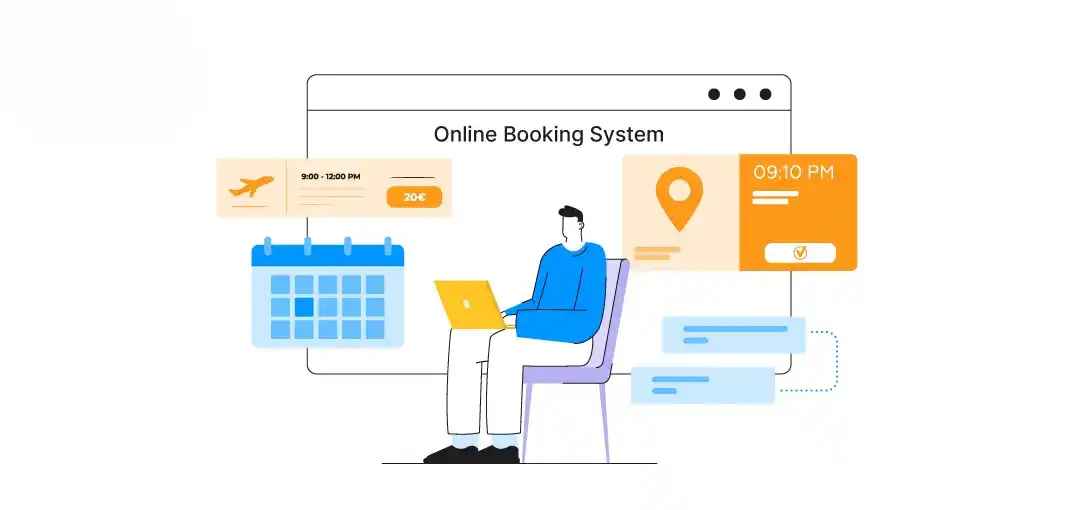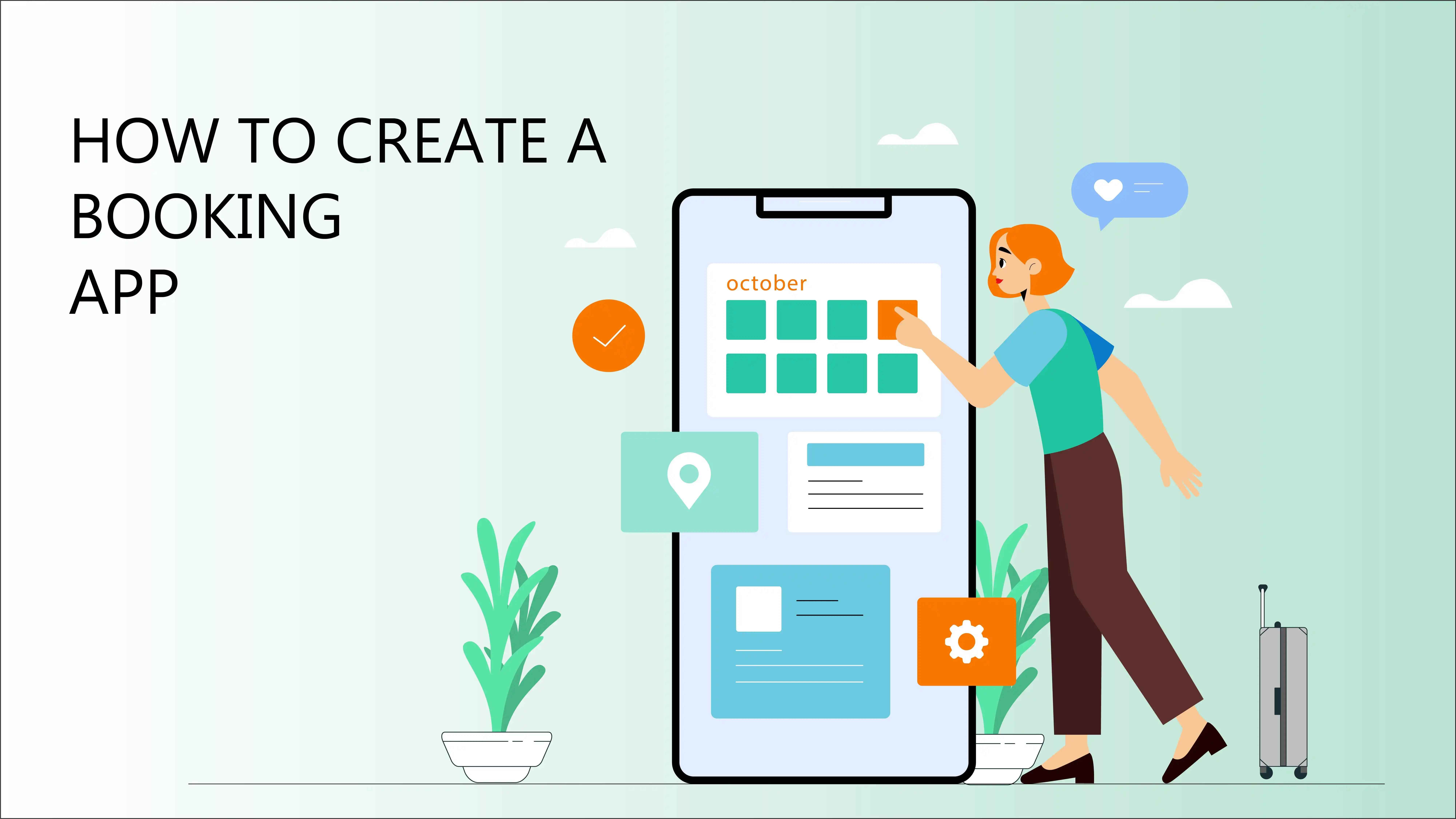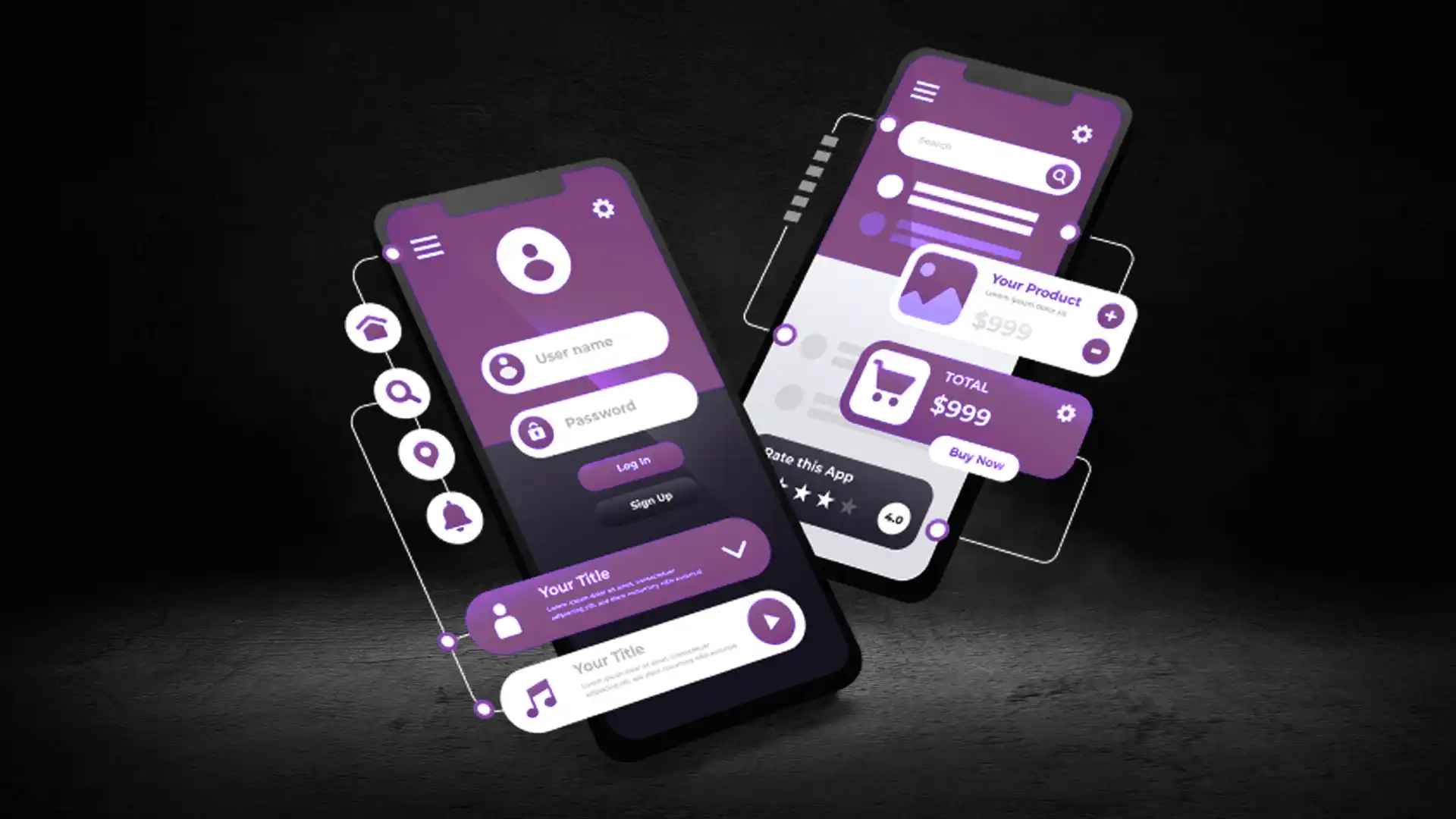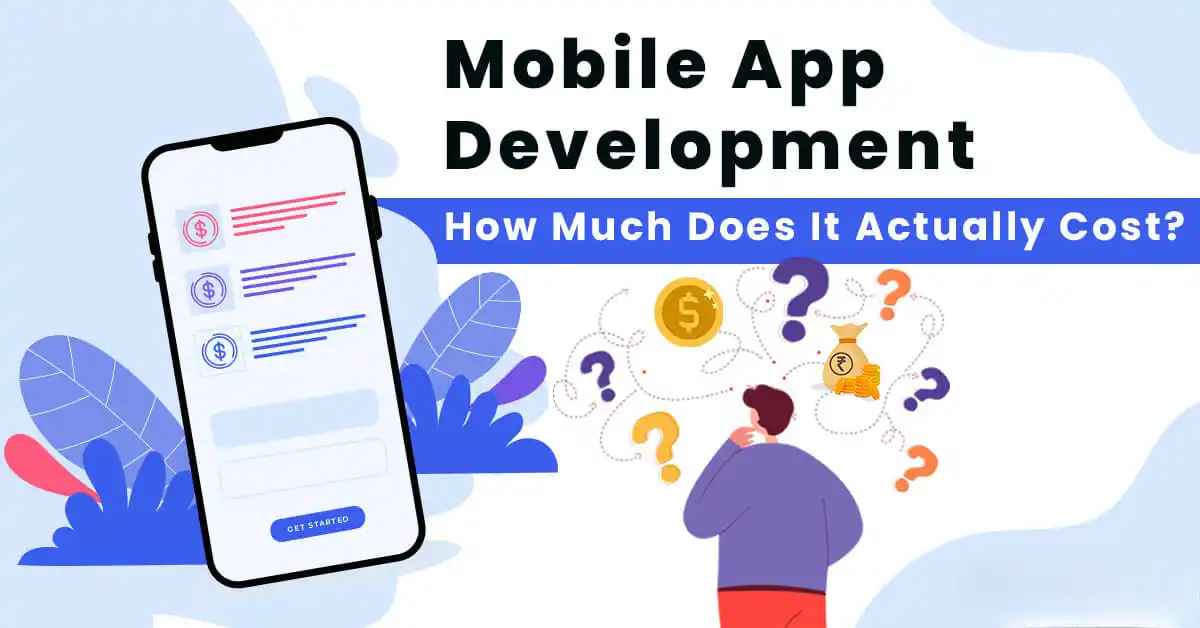Talent Booking System for Events & Artist Management
Updated on : 22 April, 2025

Image Source: google.com
Table Of Contents
- 1. Introduction
- 2. How to Built an App like Talent Booking Apps
- 3. System Workflow: How a Talent Booking App Operates
- 4. Industry Insights and System Requirements
- 5. Technical Benefits and Use Cases
- 6. Monetization Logic Implementation
- 7. Essential Functional Modules and Features
- 8. Advanced System Features
- 9. Development Workflow: Agile Sprint Breakdown
- 10. Testing, Security and Compliance
- 11. Cost Estimation Factors for Development
- 12. FAQs
Table Of Contents
Introduction
Talent booking apps are transforming how artists, influencers, and event organizers connect. These platforms streamline scheduling, payment, and communication, creating a win-win for talent and event managers alike.
Whether you’re targeting a niche like music bands, keynote speakers, or social media creators, a talent booking app helps users navigate talent discovery, availability, booking, and rating in one ecosystem.
How to Built an App like Talent Booking Apps

Image Source: google.com
To build a talent booking app, you must first identify the core features that will address the needs:
| Step | Details |
|---|---|
| Plan Features | Talent profiles, search, booking, chat, payments, ratings |
| Choose Tech Stack | Frontend: React/Flutter | Backend: Node.js/Spring Boot | DB: MongoDB/PostgreSQL | Payments: Stripe/Razorpay | Hosting: AWS/Vercel |
| Design UI | Use Figma/Adobe XD for profile, booking, search & admin screens |
| Develop in Sprints | Sprint 1: UI & Architecture, Sprint 2: Auth & Profiles, Sprint 3: Booking, Sprint 4: Payments & Chat, Sprint 5: Admin Panel, Sprint 6: Testing |
| Add Smart Features | AI matching, dynamic pricing, geo-location, real-time chat |
| Ensure Security | GDPR compliance, encrypted data, rate limiting |
| Monetization | Commission, ads, subscriptions, premium features |
| Launch & Monitor | Deploy app, track usage & analytics, keep updating |
You Might Also Like
Want to build an app for Android and iOS? Connect with Hexadecimal Software.
Your vision, our code – Android & iOS app development by Hexadecimal Software.
System Workflow: How a Talent Booking App Operates
Understanding the booking flow is essential. Here's how a typical system works:
| Step | Description |
|---|---|
| Talent Discovery | Users browse talent profiles by category, location, ratings, or price. |
| Availability Check | Calendar-based view showing available slots. |
| Booking Request | User sends a request with event details and preferred schedule. |
| Confirmation & Payment | Talent accepts the request and confirms upon payment. |
| Performance & Review | Post-event, both parties can leave ratings and feedback. |

AI is revolutionizing mobile app development with immersive experiences!
Industry Insights and System Requirements
The gig economy is booming, and digital booking platforms are the new norm. For a scalable system:
| System Feature | Explanation |
|---|---|
| High Concurrency Support | Handles thousands of users in real-time; avoids double bookings using caching, load balancing, and database replication. |
| Mobile-First Architecture | Optimized for smartphones; responsive UI using React Native or Flutter; supports push notifications and mobile payments. |
| Scalable Backend | Built with microservices and cloud-native tools like Kubernetes and AWS to handle traffic and feature growth. |
| Secure Payment Gateway | Integrates PCI-compliant solutions like Stripe and Razorpay; supports multi-currency, escrow, and fraud detection. |
Technical Benefits and Use Cases

Image Source: google.com
- For Artists: Build a digital portfolio, manage schedules, accept secure payments.
- For Event Managers: Centralized booking and tracking.
- For Agencies: Admin dashboards for analytics and compliance.
Use cases include:
- Booking local musicians for cafes
- Hiring influencers for brand gigs
- Scheduling panelists for webinars
Monetization Logic Implementation
| Model | Explanation |
|---|---|
| Commission-Based | Platform earns % from every booking transaction. |
| Subscription Model | Talent pays monthly to appear higher in search results. |
| Ad Placement | Feature talent or events for additional fees. |
| Freemium + Premium | Basic listings free; advanced features behind a paywall. |
Essential Functional Modules and Features
User-Facing Features
- Talent discovery filters
- Profile pages with media galleries
- Availability calendars
- Real-time messaging
- Booking and payment flows
Admin Features
- User management
- Booking analytics
- Flagging system
- Role-based access controls
Talent Dashboard
- Income tracker
- Schedule manager
- Booking history
Want to Know More About App Monetization
Maximize your talent booking platform's revenue potential with effective monetization strategies, expertly implemented by Hexadecimal Software.
Advanced System Features
| Feature | Explanation |
|---|---|
| AI-Based Matching | Suggest talent based on past bookings and preferences. |
| Real-Time Chat with Notifications | Enables instant communication between talent and clients |
| Dynamic Pricing | Adjust based on demand, date, or artist popularity. |
| Geo-Location Services | Find talent or events nearby. |
AI-Based Matching
- Explanation: Suggests talent to users based on their past bookings, preferences, and behavior patterns using recommendation algorithms.
Real-Time Chat with Notifications
- Explanation: Enables instant communication between talent and clients; includes read receipts, typing indicators, and push notifications.
Dynamic Pricing
- Explanation: Adjusts rates based on demand, date, event type, or artist popularity to maximize revenue and booking efficiency.
Geo-Location Services
- Explanation: Helps users find nearby talent or gigs using maps and GPS, improving discovery and conversion rates.
For AI/ML Services with Hexadecimal Software
Build intelligent Android & iOS apps powered by AI/ML – crafted by Hexadecimal Software.
Development Workflow: Agile Sprint Breakdown
| Sprint | Deliverables |
|---|---|
| Sprint 1 | UI Wireframes & Technical Architecture |
| Sprint 2 | User Auth, Talent Profile, and Listings |
| Sprint 3 | Booking Engine, Calendar Sync |
| Sprint 4 | Payments, Ratings, Messaging |
| Sprint 5 | Admin Panel & Reporting |
| Sprint 6 | Testing & Optimization |

Looking to integrate advanced solutions for your mobile app development?
1. Sprint 1: UI Wireframes & Technical Architecture
- Deliver wireframes for key screens and define the tech stack and system architecture.
2. Sprint 2: User Auth, Talent Profile, and Listings
- Implement user authentication, role-based access, and create talent profiles and listings.
3. Sprint 3: Booking Engine, Calendar Sync
- Develop the booking engine, handle booking flow, and integrate calendar synchronization.
4. Sprint 4: Payments, Ratings, Messaging
- Integrate payment gateway, enable ratings, and build in-app messaging with notifications.
5. Sprint 5: Admin Panel & Reporting
- Build an admin dashboard for user management and create booking and revenue reports.
6. Sprint 6: Testing & Optimization
- Conduct testing (unit, integration, performance), fix bugs, and optimize for deployment.
Custom Android & iOS app development that turns your ideas into powerful mobile solutions – with Hexadecimal Software.
Testing, Security and Compliance
| Feature | Explanation |
|---|---|
| QA | Manual + Automated testing (unit, integration, E2E) |
| Security | GDPR compliance, encrypted storage, rate limiting |
| Compliance | Role-based access control, audit logs |
QA: Manual + Automated Testing
Manual Testing:
- Ensure the system is intuitive and user-friendly.
Automated Testing:
-
Unit Tests: Test individual components for correctness.
-
Integration Tests: Validate interactions between components.
-
End-to-End (E2E) Tests: Simulate real user scenarios to ensure the whole system works seamlessly.
Security
GDPR Compliance:
- Ensure data protection and user privacy according to EU regulations.
Encrypted Storage:
- Encrypt sensitive data like user information and payment details.
Rate Limiting:
- Prevent abuse by limiting the number of requests from a single user or IP.
Compliance
Role-Based Access Control (RBAC):
- Define user roles (Admin, Artist, Client) with restricted access to certain features.
Audit Logs:
- Track and log actions for accountability and troubleshooting
Cost Estimation Factors for Development

Image Source: google.com
| Component | Description | Estimated Cost (USD) |
|---|---|---|
| User Authentication | Email, OTP, social logins | $2K–$4K |
| Profile Management | Talent bio, media uploads, pricing | $3K–$6K |
| Booking Module | Calendar integration, notifications | $6K–$12K |
| Messaging | Chat with event organizers | $3K–$5K |
| Payment Integration | Stripe/PayPal setup | $4K–$8K |
| Admin Panel | Dashboard for control & analytics | $5K–$10K |
FAQs
Q1: How long does it take to develop a talent booking app?
A: 4–6 months for MVP; 8–12 months for full system.
Q2: Can the app be customized for a specific niche?
A: Yes. Whether it’s for music, comedy, or influencer gigs, modules can be tailored.
Q3: Is it scalable for global use?
A: Absolutely. With a microservices architecture, multi-language and multi-currency support can be integrated.
Q4: Do you provide post-launch support?
A: Yes, we provide ongoing maintenance, feature updates, and user analytics services.
Q5: What tech stack do you recommend?
A: React Native (app), Node.js or Spring Boot (backend), MongoDB/PostgreSQL (database), and AWS/GCP (cloud hosting).
Conclusion
The talent booking system landscape is evolving rapidly with the growing demand for flexibility and scalability. By implementing key features such as AI-based talent matching, real-time messaging, dynamic pricing, and geo-location services, platforms can stay ahead of the curve and cater to both talent and clients effectively.
As the gig economy continues to rise, ensuring that your system is built with mobile-first architecture, secure payment integrations, and the ability to handle high concurrency will position your platform for long-term success.





